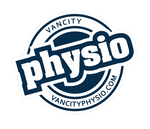When we think about physiotherapy, the first thing that likely comes to mind is treatment for injuries in the spine, shoulders, or knees. However, many people suffer from jaw pain or dysfunction, a condition that can severely impact daily life. Jaw physiotherapy, also known as temporomandibular joint (TMJ) physiotherapy, is a specialized field aimed at helping individuals with jaw-related disorders. Whether you're experiencing jaw pain, stiffness, clicking sounds, or difficulty opening your mouth, jaw physiotherapy could offer the relief you need. Here's how it can benefit you:
1. Pain Relief
Jaw pain can be caused by a variety of factors, including injury, stress, clenching, misalignment, or even certain medical conditions like arthritis. Physiotherapy can target the muscles and joints involved in jaw function to reduce pain. Techniques like manual therapy, soft tissue mobilization, and therapeutic exercises are used to alleviate discomfort and help manage pain over time.
Benefits:
- Reduces inflammation and muscle tension
- Eases discomfort from jaw clenching or grinding
- Provides relief for conditions such as TMJ disorder
2. Improved Range of Motion
A limited range of motion in the jaw can be a significant problem, making it difficult to eat, speak, and even yawn. Physiotherapists are trained to help restore movement through targeted exercises and stretches. These exercises focus on loosening tight jaw muscles and improving flexibility in the temporomandibular joint.
Benefits:
- Increases jaw mobility
- Makes it easier to open the mouth fully
- Helps with activities like chewing, speaking, and swallowing
3. Reduction of Jaw Clicking and Popping Sounds
Many people with TMJ disorders experience clicking or popping sounds when they move their jaws. These sounds can be caused by misalignment, inflammation, or joint dysfunction. A physiotherapist can help diagnose the underlying issue and work with the muscles and joints to reduce or eliminate these noises.
Benefits:
- Addresses joint misalignment
- Helps restore proper movement patterns in the jaw
- Reduces discomfort associated with clicking or popping sounds
4. Preventing Further Injury
If left untreated, jaw pain and dysfunction can lead to chronic issues or further injury. Physiotherapy aims to address the root cause of the problem, reducing the risk of long-term complications such as jaw degeneration or severe misalignment. By strengthening the muscles around the jaw and improving joint function, physiotherapy helps prevent the problem from worsening.
Benefits:
- Provides long-term prevention of jaw disorders
- Strengthens supporting muscles to reduce strain
- Improves posture, which can positively affect jaw alignment
5. Stress and Tension Relief
Stress can contribute significantly to jaw pain, often leading to habits such as teeth grinding (bruxism) or jaw clenching. Physiotherapists use relaxation techniques, posture correction, and muscle release techniques to help reduce stress and its impact on the jaw. This helps not only with physical pain but also with managing the emotional factors that contribute to jaw tension.
Benefits:
- Reduces tension in the jaw muscles
- Eases discomfort caused by teeth grinding or clenching
- Helps manage stress through relaxation exercises
6. Holistic Approach to Jaw Health
A key advantage of jaw physiotherapy is its holistic approach to treatment. Rather than just focusing on the jaw itself, physiotherapists take a full-body approach, considering factors like posture, alignment, and even sleep habits. Since issues in the neck, shoulders, and spine can contribute to jaw problems, a physiotherapist may work on these areas as well to improve overall function and reduce pain.
Benefits:
- Treats the jaw as part of a broader musculoskeletal system
- Addresses contributing factors like posture or neck tension
- Promotes overall health and well-being
7. Custom Treatment Plans
No two individuals have the same jaw problem, which is why physiotherapists design personalized treatment plans based on a thorough assessment of the patient’s specific condition. This tailored approach ensures that you receive the most effective treatment for your needs, whether you have muscle tension, joint issues, or alignment problems.
Benefits:
- Provides a treatment plan customized to your specific needs
- Focuses on the underlying causes of jaw dysfunction
- Improves long-term outcomes by targeting the root of the issue
When to Seek Jaw Physiotherapy
If you are experiencing any of the following symptoms, it may be time to seek help from a physiotherapist specializing in jaw care:
- Persistent jaw pain or tenderness
- Clicking, popping, or grinding sounds in the jaw
- Difficulty opening the mouth wide
- Jaw stiffness or limited movement
- Headaches or neck pain associated with jaw discomfort
- Teeth grinding or jaw clenching, especially during sleep
Conclusion
Jaw physiotherapy is a highly effective treatment for a variety of conditions affecting the temporomandibular joint and surrounding muscles. From pain relief to improved function and long-term prevention, physiotherapy can play a crucial role in helping you regain control over your jaw health. If you’re suffering from jaw pain or dysfunction, don't hesitate to consult a trained physiotherapist to explore the benefits of this specialized care. With the right guidance and treatment, you can achieve lasting relief and improved quality of life.


